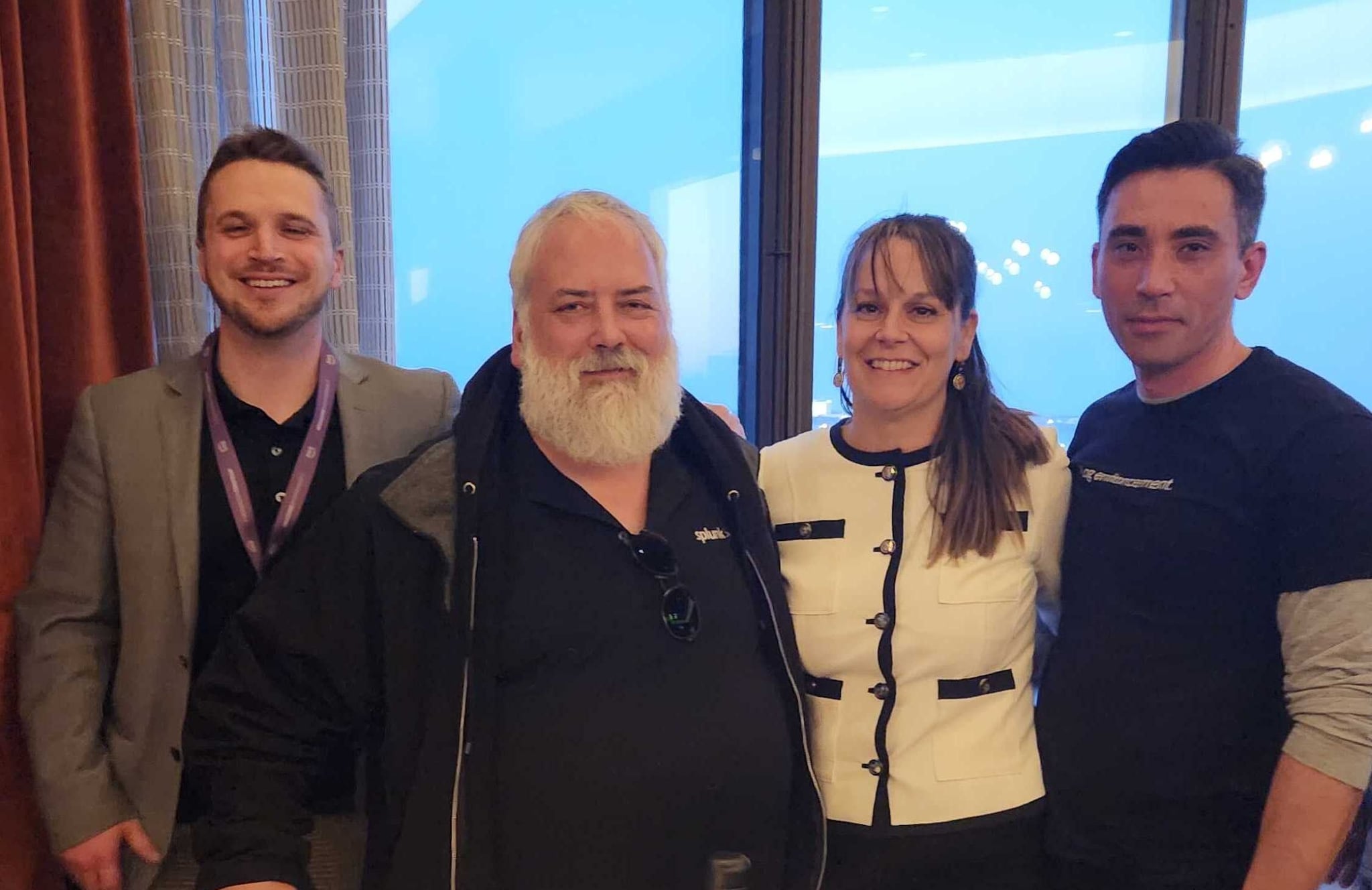Impact Bytes: Turning Data to Action to Fight Exploitation

Each year, an estimated 50 million people fall victim to human trafficking — and every day, people are tricked or coerced into exploitative situations. At just 19 years old, Sherrie Caltagirone became aware of this profound suffering and injustice, and she knew it was her life’s mission to act.
Sherrie founded Global Emancipation Network (GEN), a nonprofit organization that uses the power of data and technology to eradicate human trafficking, exploitation, and abuse. GEN fosters partnerships and uses cutting-edge technology, taking a comprehensive, international approach to help tackle these crimes.
Why Human Trafficking Is a Data Issue
“Trafficking is a human tragedy,” says Sherrie. “But it’s also an illicit economy, and those transactions often have a digital footprint. That means human trafficking is a data problem — 99.9% of our daily battles are about accessing data to stop trafficking.” That can mean financial data, such as following a money trail. It can also mean analyzing visual data: features like logos, tattoos, graffiti and colors can help investigators uncover the organized networks behind criminal activity.
While the data has long existed, the challenge for GEN is that it was siloed and dispersed. GEN selected Splunk as its data platform when it was founded, recognizing that the technology could corral and analyze the data needed to find victims and prosecute perpetrators. Splunk has been the bedrock of GEN’s mission ever since, providing access to software licenses, training, and support. Several Splunkers have served as pro bono volunteers, working to provide more advanced visualizations and value to GEN's stakeholders and partners around the world.
“Like many great partnerships, our work with GEN has grown over time,” says Paul Jeffery, solutions architect at Splunk. A number of years ago, Paul mentored a Splunk sales engineering intern who was completing a project for GEN, and ever since then, he’s provided the organization with pro bono consulting and support.
“I stay involved because I’m inspired by the GEN team and their vision of a world where every victim is rescued, and every trafficker is prosecuted,” says Paul. “If I help save one child, that’s all that matters.”
Representatives of GEN and Splunk met earlier this year while attending a conference in Washington, DC. Pictured left to right: Seamus Kearns (Splunk), Jonathan Wagner (GEN), Sherrie Caltagirone (GEN) and Paul Jeffery (Splunk).
Stronger Together, Thanks to Partners Around the World
GEN is a small but powerful organization with an outsized impact on fighting trafficking, exploitation, and abuse. That’s due in large part to partnerships it’s built with nonprofits, law enforcement agencies, private sector organizations, and governments worldwide.
Together, Splunk and GEN built a multi-tenant data analytics platform enabling secure, individualized data sharing with other organizations and the easy application of analytical tools. All the data GEN gathers is free of charge to partners, who can combine it with their own data sets. In some cases, those customers are also using Splunk and can connect to GEN’s Splunk servers to gather information.
For Splunk, this means that our support has a multiplier effect: by partnering with GEN, we ultimately help countless organizations do this vital work.
Training AI Tools to Spot Potential Abuse
Although data related to human trafficking is less dispersed today, thanks to GEN, it remains complex, and the number of data points is enormous. Fighting trafficking, exploitation, and abuse is challenging work for law enforcement professionals, and that includes the harrowing and time-consuming process of reviewing and describing images of abuse.
Working with Interpol and other law enforcement agencies and organizations – and using Splunk in the development environment — the GEN team is helping create and fine-tune a system of AI models that can process images and videos of abuse and generate descriptions for judicial purposes. This provides the ability to review more images faster, helping fight trafficking more effectively while reducing the psychological toll associated with a manual review process.
GEN has long worked with visual data. Child abuse material frequently contains visual clues, and the rise in self-generated and coerced materials means more images contain identifiable clothing, such as school uniforms. That led GEN to develop its Uniform Intelligence Hub (UIH) in partnership with CameraForensics. By matching a uniform to a school, the UIH allows agencies to accelerate their investigations and increase their chances of identifying and safeguarding victims. When the UIH is already powerful, GEN is continuing to evolve it, increasing its database, searchability, and ease of making queries.
The Goal: A World Free of Exploitation
GEN recently received a call from an Australian law enforcement agency, which shared that thanks to GEN’s tools, they had identified a perpetrator of abuse and issued an arrest warrant within 10 minutes of initiating a search. Each success is one step closer to disrupting criminal networks and safeguarding the most vulnerable, and to date, GEN has helped protect and assist hundreds of victims.
GEN welcomes volunteers on both an ongoing and project basis. Learn more about how you can support their pioneering work.
Related Articles
About Splunk
The world’s leading organizations rely on Splunk, a Cisco company, to continuously strengthen digital resilience with our unified security and observability platform, powered by industry-leading AI.
Our customers trust Splunk’s award-winning security and observability solutions to secure and improve the reliability of their complex digital environments, at any scale.




